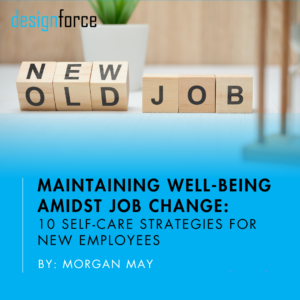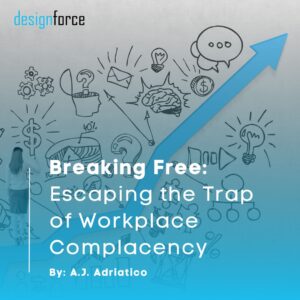
Photo Cred: NRI Matters
Let’s face it – millennials have a bad reputation. We are accused of being narcissistic, indecisive, dependent upon technology, entitled and downright lazy. However, as with most stereotypes, that version is an exaggeration of a minority of greater majority.
There are many contributing factors for why Millennials stand out so much more than other generations in the workforce. We graduated in the middle of the biggest recession our country had seen in decades. Studies prove that our generation entered the workforce as the highest educated of the past 30 years, yet ended up earning the least during onboarding into the industry, comparatively. We are faced with fewer job prospects and more debt than the generations before us. Yet just recently we have overtaken the Baby Boomers as the largest sector of the US labor force this past year.
Strangely, instead of capitalizing on this large generation’s innovative and collaborative spirit, society seems to focus on the potential negative attributes of millennial workers. Interestingly, these negative millennial attitudes could in some ways be credited to themes in parenting from Baby Boomers. Baby Boomers, stereotypically, worked hard to climb the ladder in their own careers, focusing on company loyalty and steady progression. However, perhaps some forgot to foster that same work ethic in their children. Happy to provide and share their wealth with their families amidst a booming economy, Baby Boomer parenting focused primarily on instilling confidence and hope in their children. Millennials grew up in an age where trophies for participation were expected and the constant murmuring of “you can be whatever you want to be and do whatever you want to do” became a mantra. Millennials set out into their young adult lives with energetic confidence, simultaneously stepping foot into the workforce amidst the worst economy the country had seen in decades.
Like them or not, Millennials are officially the largest section of the United States workforce, surpassing the Baby Boomer bracket this year. Perhaps you find the stereotype true, perhaps you don’t. Regardless, they are an essential part of the work force and many employers struggle to keep this age group content in their careers.
Below are some tips, admittedly coming from the biased mind of this Millennial, on how to overcome the stereotypes and communicate, work with, and inspire millennial employees.
Entitlement vs Being Heard
I believe that Millennials don’t have so much of a sense of entitlement as a desire for their voices to be heard. My generation is used to open discussion and the free expression of viewpoints. However, this does not necessarily come with the expectation that our ideas are used in practice. This harkens back to those participation trophies – we want recognition for using that college educated brain to come up with an idea that is recognized and heard. This does not mean that bosses must acquiesce to every millennial demand, but listening does goes a long way.
Millennials are certainly opinionated and not shy of sharing those opinions, but that doesn’t exactly mean entitled. Studies show that Millennials do have an understanding of what makes a good employee. In fact, they spend much more time thinking about their own reputation in the workplace than the other age demographics. Explain how and why your way is better due to your vast experience and institutional knowledge. Fostering this conversation will give you as an employer a unique opportunity to gain insight on the overall satisfaction of your employees.
The “C” word(s)
Culture is one of those terms that is thrown about often when speaking about workplace satisfaction. It is believed that Millennials only want to work in offices with ping pong tables and catered lunches. However, company culture can’t be defined by how many cool toys are in the office. Culture is more the energy and feeling one gets when working in an office day in and day out. Millennials are looking for collaborative, flexible work-environments. Interestingly, although Millennials have been raised in the age of technology, they crave face-to-face communication. In a Mattersight survey of its Millennial customers, 85% of the Millennials they surveyed would much rather communicate with their co-workers face-to-face than any other form of communication. We have been raised and educated in an era of team-work, group projects, and open communication. Of course Millennials desire those exact things in the space they spend most of their week. By nature, Millennials are more collaborative than competitive. The social, cooperative nature of Millennials is something that can be advantageous to everyone in the workplace. Promoting social events across all generations of a company encourages the sharing, and perhaps creation of new, ideas. Again, it also gives employers a chance to check in directly on the pulse of the happiness of their employees in a casual way.
Transparency and Mentorship
Millennials have an overall entrepreneurial spirit. It is true that we have less company loyalty than the previous generations, but I believe that has more to do with the hardships of the recession than anything else. We saw “the system” of pension and retirements fail some of our parents, we ourselves had a difficult time getting jobs fresh out of school, so we are therefore less blindly trusting of the corporate ladder mentality. However, this can be overcome through transparency in company structure. If Millennials are exposed to the hows and whys of hierarchy and where they fit in, they are more likely to be invested in figuring out exactly how they can contribute. If there are open lines of communication about company structure as well as company-wide goals for the future, Millennials can be motivated and inspired to push the company forward.
Collaborative by nature, Millennials desire open dialogue about growth opportunities. Clear outlines of expectations and performance-based pay have proven especially beneficial to millennial achievement. Millennials love mentorship – for better or for worse, we are used to coaches, not bosses. Staying in school for longer and longer periods of time, Millennials are used to and dependent upon structures of constant feedback and evaluation. Giving feedback doesn’t have to be entirely time-consuming for employers, though. Since we’re so used to communicating in short bursts through technology, studies show that even a brief daily check-in (a text, a brief email, or 2-minute conversation) is sufficient.
In the end, the older generation having a difficult time understanding the younger generation, is in no way a new obstacle. The contributing factors of 9/11, the recession and the rapid growth of technology perhaps separated Millennials more than usual from the generations that have preceded them. This separation has caused greater misunderstanding between the age groups and lead to many negative stereotypes towards Millennials. But bridging the gap is possible! If employers focus on collaboration and communication with an open mind with their millennial employees, I think they will be surprised how quickly Millennials can become more engaged, productive and motivated in the workplace.

Related Posts
Let's learn together.
Stay inspired and in the know on all things A|E|C.
Sign up for our monthly newsletter.










